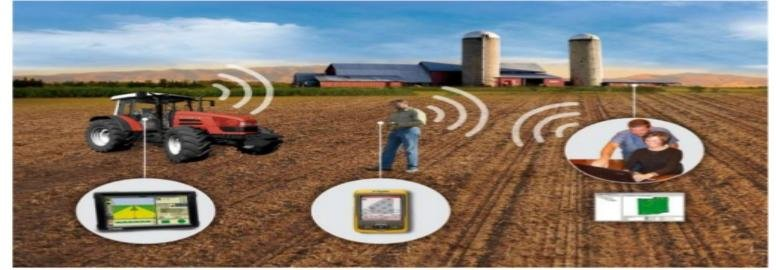Africa’s agricultural sector is the backbone of its economy, employing millions of people and contributing significantly to the continent’s GDP. However, the sector faces numerous challenges, including limited access to information, inefficient supply chains, and inadequate use of technology. Information and Communication Technology (ICT) has emerged as a game-changer in promoting agricultural development in Africa, enhancing productivity, and improving the livelihoods of farmers.
Access to Information and Knowledge
ICT has revolutionized the way farmers access information and knowledge in Africa. Mobile phones, the internet, and other digital platforms have made it possible for farmers to access critical information on best practices, weather forecasts, market prices, and new technologies. This information enables farmers to make informed decisions, reduce risks, and improve their productivity.
Mobile-Based Services
Mobile-based services have been instrumental in promoting agricultural development in Africa. Services such as SMS-based advisory platforms, mobile apps, and USSD codes provide farmers with access to critical information and services. For example, platforms like M-Farm in Kenya and Esoko in Ghana provide farmers with real-time market information, enabling them to negotiate better prices for their produce.
Precision Agriculture
Precision agriculture involves the use of ICT and other technologies to optimize crop yields and reduce waste. In Africa, precision agriculture is being used to improve crop management, soil health, and water usage. Technologies such as drones, satellite imaging, and sensors enable farmers to monitor their crops remotely, detect pests and diseases, and apply targeted interventions.
Digital Extension Services
Digital extension services are transforming the way farmers access advisory services in Africa. Platforms like video-based extension services and online forums enable farmers to access expert advice and share knowledge with other farmers. This approach has been particularly effective in reaching remote and marginalized communities.
Market Access and Trade
ICT is also improving market access and trade in Africa’s agricultural sector. Online marketplaces and e-commerce platforms enable farmers to connect with buyers and sellers, negotiate prices, and access new markets. This has improved the efficiency of supply chains, reduced transaction costs, and increased the incomes of farmers.
Financial Inclusion
ICT is also promoting financial inclusion in Africa’s agricultural sector. Mobile-based financial services enable farmers to access credit, savings, and insurance services, reducing their vulnerability to shocks and improving their productivity.
Challenges and Opportunities
Despite the potential of ICT in promoting agricultural development in Africa, several challenges need to be addressed. These include:
- Limited access to digital infrastructure, particularly in rural areas
- Limited digital literacy among farmers
- High costs of ICT services
- Limited availability of relevant and timely information
However, the opportunities presented by ICT in African agriculture far outweigh the challenges. With the right policies, investments, and partnerships, ICT can transform the agricultural sector, improve the livelihoods of farmers, and contribute to the continent’s economic development.
Conclusion
In conclusion, ICT is playing a critical role in promoting agricultural development in Africa. By providing access to information, knowledge, and services, ICT is enhancing productivity, improving market access, and increasing the incomes of farmers. As the continent continues to invest in digital infrastructure and services, the potential of ICT in African agriculture will only continue to grow. With the right support and investments, ICT can help Africa achieve its agricultural potential, reduce poverty, and improve food security.
Recommendations
To fully harness the potential of ICT in African agriculture, several recommendations can be made:
- Invest in digital infrastructure, particularly in rural areas
- Develop digital literacy programs for farmers
- Promote the development of relevant and timely digital content
- Encourage public-private partnerships in the development of ICT services for agriculture
- Develop policies and regulations that support the growth of ICT in agriculture
By implementing these recommendations, Africa can unlock the potential of ICT in agriculture, improve the livelihoods of farmers, and contribute to the continent’s economic development.

